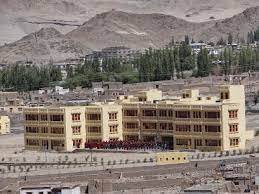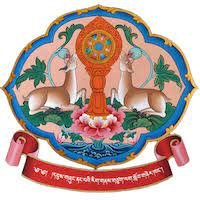A Bachelor's in Sowa Rigpa Medicine & Surgery opens doors to a fulfilling career in traditional Tibetan medicine. Graduates can practice, research, and teach, contributing to holistic healthcare and cultural preservation, amid rising global interest in alternative therapies.
Future Scope & Benefits of Bachelor in Sowa Rigpa Medicine & Surgery
Pursuing a Bachelor's degree in Sowa Rigpa Medicine & Surgery can lead to a variety of future opportunities and benefits, particularly in the field of traditional medicine. Here are some potential advantages and the scope of this degree:
1. Preservation of Traditional Knowledge: Sowa Rigpa is a unique system of traditional medicine with deep historical roots. By studying and practicing this system, you contribute to the preservation and continuation of ancient healing knowledge.
2. Holistic Approach to Healthcare: Sowa Rigpa emphasizes a holistic approach to health, addressing not only physical ailments but also mental, emotional, and spiritual well-being. This approach aligns well with the growing interest in integrative and holistic healthcare practices.
3. Demand for Traditional Medicine: Traditional medicine systems are gaining recognition and popularity worldwide as people seek alternative and natural approaches to health and wellness. Graduates in Sowa Rigpa can find opportunities to serve this demand.
4. Integrative Medicine Centers: Many modern healthcare facilities are integrating traditional medicine practices alongside conventional treatments. Graduates can find roles in these integrative medicine centers, offering patients a well-rounded approach to healing.
5. Cultural and Global Impact: As a practitioner of Sowa Rigpa, you contribute not only to individual health but also to cultural preservation and cross-cultural exchange. Your knowledge can have a positive impact on local communities and even reach a global audience.
6. Entrepreneurship: Graduates can establish their own practices, clinics, or wellness centers dedicated to Sowa Rigpa. This entrepreneurial path allows you to shape your practice and contribute to your community's well-being.
7. Research and Innovation: The field of traditional medicine is evolving, with opportunities for research and innovation to enhance the effectiveness of treatments and expand the knowledge base.
8. Global Outreach and Collaboration: Traditional medicine practitioners are sought after for their unique expertise. You might find opportunities to collaborate with international organizations, research institutions, and healthcare providers.
9. Personal Fulfillment: Healing others and contributing to their well-being can be deeply rewarding. The personal satisfaction of helping individuals improve their health and quality of life is a significant benefit of this profession.
10. Diverse Career Paths: Graduates can work as clinical practitioners, educators, researchers, consultants, or even contribute to policy development in the field of traditional medicine.
11. Cultural Heritage Preservation: By studying and practicing Sowa Rigpa, you play a role in preserving cultural heritage and traditional healing practices that have been passed down through generations.
12. Continuous Learning and Growth: Traditional medicine is a field of continuous learning. As you deepen your knowledge and experience, you can refine your skills and stay updated with the latest developments.
 5 Years
5 Years
 Under Graduate
Under Graduate
 Medical
Medical
 Full Time
Full Time



 back
back

